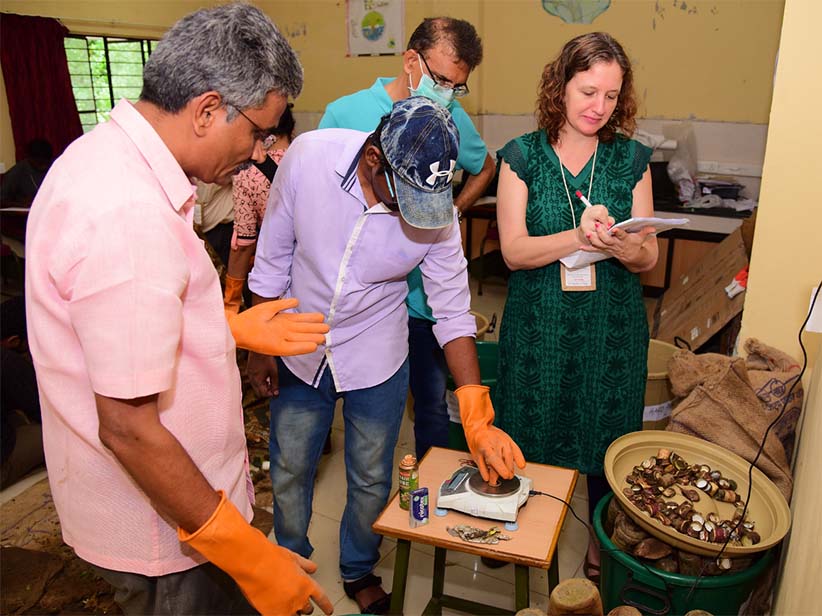Panel on Field Research Features UHart Professor

Research in higher education has been changed by the pandemic, but also by myriad other factors in recent years. It’s exactly what University of Hartford Professor Katharine Owens has witnessed—as someone who’s done field work and research in multiple countries and collaborated with researchers from around the world, she’s been a part of these efforts as they’ve evolved.
Owens was featured in a live panel on the topic with The Chronicle of Higher Education July 27. Register to download the recording here.
In addition to Owens, professors from Stanford University, James Madison University, Wichita State, and Iowa State joined the panel.
Owens is the director of UHart’s University Interdisciplinary Studies Program, director of the Rell Center for Public Service, and a professor in the department of Politics, Economics, and International Studies in the College of Arts and Sciences. She focuses on plastic pollution, and some of her students have even joined her studies abroad.
A National Geographic Explorer, Owens has pursued her work in countries like Kenya, Finland and India, where in 2019 she spent six months working on plastic pollution research. The pandemic then disrupted a collaborative project on river pollution she had planned for Uganda. Changes in the field prompted by Covid-19 caused Owens to reflect on her role in international research and what she’d like to do differently moving forward.
“I have always worked to collaborate with researchers in the countries I visit and be sure that we are sharing in the valuable outputs of research (like co-authorship in publications, in grant money, etc.). And yet, even though I think my work in the past was collaborative, I don’t know if I will continue to work abroad,” Owens said. “Right now, I’m trying to figure out how I can use my work to support and amplify researchers in other countries. I’ve also tried to support researchers in other countries as they apply for grants—for example by offering to review and give feedback on their proposals.”
The Chronicle’s panel discussion focused on public health, climate, and political and financial concerns, as well as new technologies that allow for increased collaboration and what’s ahead for higher education research.